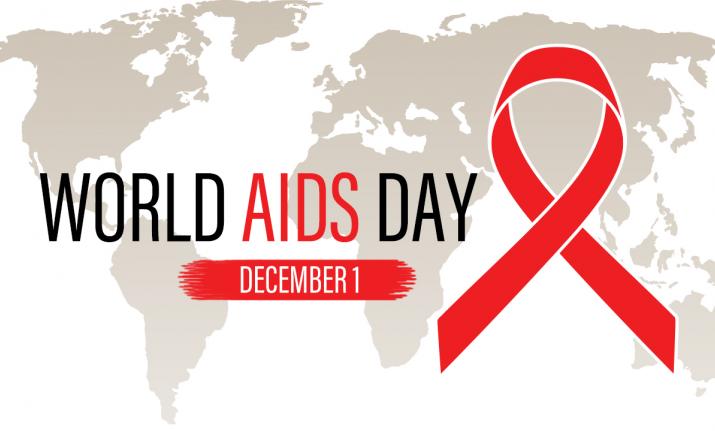Today, the global community marks the annual World AIDS Day 2020. The theme of this year’s event is “Global Solidarity, Shared Responsibility,” and it emphasises the need for governments to properly fund health, strengthen health systems, provide access to health for their people, and deliberately ensure gender inclusion that guarantees the rights of women and girls.
Beyond the United Nations’ awareness campaign, for Nigeria, World AIDS Day 2020 is a call to action in order to curb the prevalence of HIV/AIDS across the country.
The data about HIV/AIDS in Nigeria is grimy. Nigeria has the second-largest HIV/AIDS prevalence in the world, and as at 2019, there were 1.8 million persons living with the virus in the country. An estimate by the UNAIDS states that “around two-thirds of new HIV infections in West and Central Africa in 2019 occurred in Nigeria.”Also, data from the National Agency for the Control of AIDS (NACA) shows that in 2019 there were 103,404 new infections and 44,830 deaths from the virus. Worse still, the prevalence of this disease among adults could be disturbing. In Akwa Ibom, which has the highest prevalence level, the rate is put at 4.8 per cent; Benue (4.5 per cent); Rivers (3.5 per cent); Taraba (2.7 per cent); and Anambra (2.4 per cent).
Compared to the 1990s when HIV/AIDS was a leading cause of deaths in Nigeria and other developing countries, the situation in 2019 shows a great improvement. However, for the country to rank as the second-highest in HIV/AIDS prevalence in the world shows that Nigeria is not keeping pace with efforts by other countries to ensure HIV/AIDS prevention, treatment and reduction. The reason for this is not far-fetched.
Nigeria depends largely on donor-funding for testing and treatment of HIV/AIDS. For instance, the country benefits from the United States President’s Emergency Plan for AIDS Relief (PEPFAR) and the World Bank funding for managing the virus. Though these funds are available to other developing countries as well, other governments in sub-Saharan Africa have robust budgets for tackling HIV/AIDS.
Since donor funds began to fade in the last three years, the government promised to increase the funds allocated for HIV/AIDS. Along this line, it said it took responsibility for the treatment of 50,000 persons living with HIV/AIDS in 2019 and planned to add another 50,000 to this number in 2020. Considering the fact that 1.8 million Nigerians are living with HIV/AIDS, the government’s plan is to carry less than 10 per cent of the country’s HIV/AIDS burden, is not good enough. Also, it is not clear how its policy of 90:90:90 has succeeded. The government envisioned that “by 2020, 90% of people living with HIV will know their status, 90% of people who know their HIV-positive status will be accessing treatment and 90% of people on treatment will have suppressed viral loads.” This is December 2020, but it is not clear how much of this objective has been achieved.
It is time for the government to face HIV/AIDS frontally and fund it adequately. Political leaders, civil society organisations, and development partners are on the same page on the fact that ending HIV/AIDS as a public health threat would require reasonable domestic funding. If the government fails in this important task and abandons those living with HIV/AIDS to source their drugs, Nigeria would be exposed to a pandemic, as all the gains recorded in the past would be eroded by new infections.
Apart from the need to allocate and release more funds for the prevention and treatment of HIV/AIDS, the government should tackle the sources of new infections. The government data shows that 32 per cent of new HIV infections were through sex workers, men who have sex with men and people who inject hard drugs on themselves. It is important for the authorities to isolate these categories of Nigerians for proper enlightenment and counseling. The fact that HIV/AIDS is deadly cannot be over-emphasised. All hands must be on deck to reduce its spread.

 Join Daily Trust WhatsApp Community For Quick Access To News and Happenings Around You.
Join Daily Trust WhatsApp Community For Quick Access To News and Happenings Around You.